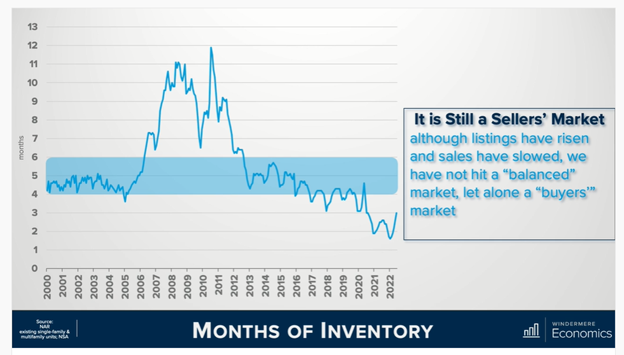Agent Compensation Court Cases

Many of you have likely been hearing about a large class-action lawsuit and decision that came out last week impacting the Real Estate industry and brokerage fees. The current case is the Sitzer/Burnett case but there are others filed and brewing in the background. I wanted to offer some background on this case and the gist of the issues in all of them.
At the core of the issues is the past requirement that most Multiple Listing Services—the databases of homes for sale in a general area—had that Sellers had to offer some form of compensation to the Buyer’s agent to put their homes in these databases. Our local MLS and many others around the country stopped this practice almost 5 years ago. The intent was for Sellers to benefit from exposing their home to all agents and brokerages in the area so that all agents and their prospective buyers could know about all homes for sale in the area at the same time.
In historical and more normal market conditions, this system has worked very well. Seller’s homes got maximum exposure to buyers anywhere and everywhere. Larger brokerages wouldn’t have an advantage by hiding properties from smaller brokerages. The requirement for offering compensation was so that all buyer’s agents would know what compensation they’d receive for submitting a successful offer to a home seller. This compensation was offered under what was labelled cooperative compensation. A home seller hires me to represent them. My office and I have a fee we charge to represent you and part of that fee we offer and agree to pay to the office/agent that brings the successful buyer’s offer to us.
The lawsuits are arguing that this cooperative compensation or ANY agreement that requires a home seller to pay ANY money to the Buyer’s agent is an undue burden on home sellers. They claim this raised the costs to sell or buy a home. Their argument is that the only compensation to the Buyer’s agent should be paid by the Buyer. The jury, judge and Plaintiff attorneys all failed to recognize, VA buyers can’t pay a Buyer Agent fee; it’s against lending regulations. Moving on, their theory is that if Buyers and Sellers had to each pay their respective agent fees, then Real Estate fees would be lower. As is the case for many aspects in life, theories can make sense, but in practice, they often fall short of the best option or solution.
Home sellers have always been allowed to sell their homes on their own—For Sale By Owner, or by numerous variations of limited agent assistance or representation, and with various offers of compensation to agents and buyers. Historically these are utilized about 7% of the time; even less when you look into the details of many of these sales. If Sellers could lower their costs, why is this option so under-utilized? Because exposure to a wider market benefits the Sellers. Similarly, Buyers have also been allowed to hire an attorney, or more recently an agent, to find them the home they want and pay their attorney or agent an agreed upon compensation. It’s not been a normal practice for Buyers as this additional cost is often prohibitive and limits Buyer’s abilities to buy the home they want. Sellers and Buyers know they both benefit with exposure to the marketplace and quality guidance from Agent representation. So how do we solve the who’s paying who question? It seems these court cases want to stop our current practices without posing any equitable solutions. 
So why all the litigation flare-up with a potential $5B+ in damages against the National Association of Realtors and several National Brokerage Companies? It’s a bit grey on the why or why now, but mostly it seems some home sellers are claiming either they didn’t know they were required to pay or didn’t feel they should be required to pay these fees. Their logic is, “I didn’t know this Buyer’s Agent, by definition they are the Buyer’s agent, this agent didn’t DO anything for my benefit, and therefore I shouldn’t have to pay them anything”. They claim that they weren’t told of this requirement to pay and had no ability to negotiate the amount of this payment.
There are several parts to this logic that I find troubling and disingenuous. First, many MLS systems across the country, including Washington, have stopped the requirement to offer Buyer Agent compensation, but in the states where the class-action suits are filed, it seems they did have a requirement of offered compensation to be in the MLS system. This requirement will now be removed across the country. My next issue is with the Sellers claiming a lack of knowledge in agreeing to pay a Buyer Agent fee, and their options on what to pay. With 37 years of experience in this field, I’ve sat at enough desks, tables, counters, screens and phone calls to tell you a discussion with Sellers on real estate fees are always a point of conversation; not necessarily a point of conflict but always a point of education and discussion. Why a home seller would want to pay a fee to a Buyer’s agent and how much this fee should be is a normal topic of conversation. Home Sellers don’t expect me or my brokerage to know EVERY buyer that may have an interest in their home. They hire me to expose their home to the world, the widest possible audience I can, including all licensed agents in the area—or around the world these days. Most home sellers also know that removing barriers for a potential buyer is a wise decision. Lowering a Buyer’s cost to get a Buyer’s offer on their home is often a wise decision. But why would any other agent want to sell your home if they don’t know if or what they might receive in compensation? If the buyer can’t afford the home and the fee for the Buyer’s agent, the Seller loses out on a potential sale. That’s bad for Sellers and Buyers, but a solution is available. A Seller could pay the Buyer Agent an acceptable fee and put the sale together.
These lawsuits came up during the steepest rise in home values in history. Most areas of the country were seeing 15-25% per year property value increases. We’ve had more generations of buyers in the marketplace than ever before and more demand for homes as our inward immigration flow brought more people into our country. Combine this demand with the decline of home building from 2007 to the present and we find ourselves with the lowest inventory of available homes and highest demand ever—in almost every City and region of the country. With all of this demand, did a home seller actually have to offer to pay a Buyer Agent fee? “Couldn’t I have just said NO?” Seems logical, except for the MLS rule mandating the offer of compensation. Let’s take a quick moment to understand this “rule’s origin”.
MLS systems started back in the 1960’s to 1970’s in most parts of the county. As mentioned earlier, the intent was for equality of access to information. Not sharing information about all homes in all areas, as happened prior to most MLS formations, led to inequality of access to information and homes. The MLS and Realtor Code of Conduct and Ethics rules sought to eliminate this. Anyone, anywhere, should be able to know about any home, anywhere and be able to buy it, if they have interest and ability to afford it. Simple and straight forward. With this new open sharing of information, Sellers would benefit from increased exposure of their properties to agents and buyers. This voluntary joining to the MLS for this increased exposure came with a cost—the agreement to tell agents what they’d receive for bringing a ready, willing and able buyer with a successful offer to a Seller. Historically all agents were considered agents or sub-agents of the Sellers, as they were the one’s paying the fees, so the MLS and NAR rule stated what was the practice—Sellers pay all the agent fees for a home sale for the benefit of more exposure to the brokerage community and increased buyer awareness. Buyers benefitted and so did Sellers. It has been a common practice, even as recently as the 1980s, for Seller’s to offer a higher compensation fee to the agent bringing the buyer/offer, than the agent/agency the Seller hired to market the home and represent the Seller. When market conditions are not so favorable to Sellers, it’s still common practice for Seller’s to offer Buyers and Buyer Agent Bonuses, in hopes of generating an offer. In today’s market, it’s quite common for Sellers to “buy down” the Buyer’s interest rate to help them qualify for the price on the Seller’s home. The point being, these offers of compensation were broadcast through the MLS systems and often revolved around Seller’s agreement to pay fees, even higher fees, if they can receive an acceptable offer. If Sellers historically offer incentives to Buyers, in hopes of generating an offer, is a Seller offering to pay a Buyer agent fee, any different from a Seller offering to pay other closing costs of the Buyer?
Buyer Agency came into existence in the 1990’s and Buyers were finally allowed to work with an agent vs. an attorney to actually represent their interests and offer them guidance and education about homes and the home buying process. I worked hard to bring Buyer Agency into the state as it made Buyer representation much more affordable than Buyer’s having to hire attorneys to draft and negotiate their offers. Attorneys didn’t want to be out showing buyers homes, matching up wants and needs; explaining the many variables of different homes, market conditions and offer/negotiation strategies. Attorney training is also always based on a win-lose framework—we win, the other side loses. However real estate doesn’t work well with this mentality. Successful negotiations usually require understanding of the other side’s perspective and needs, then finding common ground. That’s not typically an attorney’s forte’. Attorneys also charge for their time, regardless of the outcome, and this again is cost prohibitive for most buyers. Agents only get paid if and when a sale closes. Rule or no rule, most Sellers saw the wisdom in this offer of compensation. Some Buyers are now arguing they should negotiate directly with their agent and not have the Seller set this compensation rate. The theory being the Buyer wants to pay less and reduce their costs. This is possible and has been for many years in most states. I’d note many brokerages that tried to promote their lower fees have not been successful but it is a Buyer’s right.
Now let’s go back to the recent market times of the 20-Teens. Historically low inventory and high demand. Sellers are receiving multiple offers, often 10, 20, 40+% over the Seller’s asking price. I know, I wrote many in the 40+% over and still didn’t win the home. It’s been insane and anything but normal. So why would a Seller be required to pay a Buyer agent fee? Besides “the rules are the rules” comment, the next most common reason is because it benefited the Seller. To say the Buyer’s Agent “didn’t DO anything for me” is again between ignorant and disingenuous. The Buyer’s Agent brought you an offer to buy your home—just like you asked them to do by complying with the rule and listing contract they signed. Only one of those buyer’s agents got paid but you, the Seller, benefitted from all of their efforts—the competing offers you received. The buyer’s ability to qualify and possibly increase the “exuberance” of their offer terms was often predicated on the compensation you agreed to pay the Buyer’s agent. Buyers needed their funds to pay additional down payments, cover low appraisals, or pay other lender fees. Some Buyer’s Agents even agreed to reduce or eliminate this compensation to improve their Buyer’s offer by lowering the Seller’s costs. Many of these buyers would not have been able to perform if they had the added costs of paying the Buyer Agent fee. Fewer offers for Sellers likely meant lower overall offer prices, lower final sale prices and lower proceeds to the Sellers at closing. Still think you got no benefit from the Buyer’s Agent? We also saw Sellers updating and remodeling their homes during these crazy market conditions. Did they have to do this? Absolutely not, but they did. Wise Sellers knew that they’d get bigger returns on their home’s value by making these improvements and offering this compensation. Generating more offers, better offers and holding a stronger negotiation positions for the Home Seller was the intent and the result. 
These same home sellers, who likely sold in multiple offer situations, with over-asking price sales benefitted from the fees they agreed to pay to the Buyer’s agents. They signed a contract agreeing to pay these fees and benefitted from their actions. To now receive compensation from the Courts, claiming they were harmed or damaged by a rule or lack of understanding seems unlikely. Let’s also remember that most home sellers become home buyers, who again benefitted from the Seller-paid real estate fees on their purchases. The required rule of compensation has been out or going out of practice for years in many MLS systems. It seems the scope of the damages from these cases may well push us back to a market of less cooperation and information sharing. That isn’t a good practice either. Our current real estate practices may not be ideal, but they’re considered to be the best system in the world for equality of access and opportunity, for representation of separate parties interests and overall efficiency of process. Yes, our overall fees may be higher than other parts of the world but the services we provide are well above what other countries offer to Buyers or Sellers. In less favorable market conditions for home sellers, we are and will see Sellers wanting to offer bonuses to Agents and Buyers, but the Court’s rulings may prevent these options which won’t help Sellers or Buyers. It’s sad to see these cases arise and even more so to see the lack of understanding of how variations in market conditions create options that may benefit Buyers and Sellers. Strike a mandatory compensation requirement for Sellers? Sure; it’s done. Eliminating the ability to offer compensation to the Buyer or their Agent is a bridge too far. Reducing affordability or the sharing of available home information could also be a result and that benefits no one. Real estate is a unique and very difficult business to operate in, as evidenced by the huge influx and failure of businesses that Wall Street and Tech firms have been trying to disrupt our industry with for the past 20 years. It’s a People business and it requires options, not made up, after-the-fact, rules. This business evolves to the benefit of Sellers and Buyers and will continue to do so without the “benefits” of Court rulings to hamper our abilities to help our clients.
Photos by Tingey Injury Law Firm on Unsplash
Money Photo by Giorgio Trovato on Unsplash
Every Which Way But Loose….??
 We’ve been bombarded by divergent economic news events and statistics for the past few years. The forecasts seem just as divergent. There seems to be some consensus that a recession is coming but when? How severe? How long? What can we do about it? There’s no consensus on these answers. We, the general public, have done remarkably well at coping with this chaos and our ability and willingness to ignore this chaotic data only confounds the so-called experts and their forecasts. We were going into or in a recession in early 2022 but to most of us, it didn’t feel that way. The data said some things, life said others.
We’ve been bombarded by divergent economic news events and statistics for the past few years. The forecasts seem just as divergent. There seems to be some consensus that a recession is coming but when? How severe? How long? What can we do about it? There’s no consensus on these answers. We, the general public, have done remarkably well at coping with this chaos and our ability and willingness to ignore this chaotic data only confounds the so-called experts and their forecasts. We were going into or in a recession in early 2022 but to most of us, it didn’t feel that way. The data said some things, life said others.
So how does this impact real estate? Interest rates doubled last year—bringing on more fears of an economic or at least real estate “CRASH”. This much of a rate hike would typically slow down buyers and we’d see the real estate market cooling off dramatically. That’s what the FED said they wanted—“to kill the real estate market”! However, the rise in interest rates created a shortage of homes for sale as some who were considering selling, stopped and sat still. They didn’t want to give up their low interest rate by selling their home, then turn around a buy a different home at likely a still higher price point and much higher interest rates. So what happened? The market didn’t crash. Prices did drop, in some of our area 25%, but in other areas only 10%. Then buyer demand kicked back in and sales came back with multiple offers and prices being bid back up 10-25%+! While these bids may not have reached our peak prices from the early spring of 2022, they still were and are going well above the valley of prices from November/December of 2022. Yes, overall sales volume, quantity of homes selling, is lower but the market is still quite active and the search for more homes to buy is still quite strong.
We’ve seen a pretty steady rise in median home prices in all of our region since the first of this year. Month over month in most areas and price ranges, we’ve seen a steady rise in home prices. But how with interest rates so high? Simply put—demand. We still have plenty of new household formations going on; people with new jobs in our area or in need of new houses and able to afford the homes they want at the interest rates of today. They’re all looking to and planning on refinancing their homes in 1-2 years, when we expect rates to be back into the 5% range, but for now they can and are affording to buy. It’s this willingness to spend, with confidence in their incomes, that is confusing the financial forecasters. Most forecasts expected the threat of higher interest rates would stop the market. Add in the threat of a recession and/or a job loss would surely stop people from spending but—the spending goes on. In housing, in travel, in automobiles, certainly in grocery spending. We’re all spending more and confounding “the experts”. Jerome Powel, FED Chairman, is still threatening to raise interest rates more to slow down the economy. We will see if these come to pass. New jobless claims are up, near peak levels for the past 4 years, but our confidence in the overall American economy, in our abilities to get that next job with a stable or better income is keeping the economy moving ahead.
There are certainly many economic indicators that are not encouraging but so far none of them are really dampening the housing market or the economy. There’s lots of talk about worrying but the overall sentiment appears to be more of an eye for opportunity and caution but a willingness to take on risk. We’re seeing some people diversify out of the stock market into real estate—fearing if there is a real economic collapse, real estate will perform better as we continue to have demand—in particular in our area of the country. People have to live someplace. Certainly the stock market’s rebound or strength is more concentrated in fewer stocks than most would like to see but it’s hard to say the market isn’t performing well. There’s lots of promise and optimism, despite constant watching for signs of trouble.
Fear is never a great motivator nor a good guide. Taking on risk is unique and subjective to each of us. I never recommend buying or selling a home without a broader discussion of your wants, needs and timelines. That said, we saw a huge run up in home values since 2019 and despite the drop in values last fall, it’s hard to say that real estate isn’t a wise decision—in our local region in particular. We have great diversity in economic engines in our region; wonderful natural resources to enjoy; pretty amazing weather—despite our reputation for rain and great services, culture and opportunities. Huge amounts of wealth and innovation are also in our region. These 2 factors alone, will continue to attract others to the Puget Sound area. Combine them with our other attributes and we are a unique and desired location for many and this means strength in the housing market.
This isn’t a great real estate market for everyone, sadly not a great one for those trying to climb onto the economic ladder, but it seems likely we will continue to see stable to improving home values. Steady demand to buy into it will continue, especially when interest rates improve. We have some recession fears to watch, but the most likely scenario if these come to fruition are for improved interest rates and improved demand for housing. Home prices usually improve or stay stable during times of recession. Waiting for the economy to crash and housing prices to drop isn’t likely a good strategy for those looking to get into the housing market. A better plan is to talk with advisors on how to save monies, pay off specific debts and find unique opportunities for you to get into the market. If you’d like advice or specific assistance with your needs, please reach out. I’m happy to help.
Crazy Market Whiplash

We’ve come out of a market with historic price appreciation, 70-80+% of offers at/above asking price and a record sales pace to now a market with  sales slumping by 20% and sale prices 20-25% off our peak prices of April and May of this spring. Hold on to your head and your hat!
sales slumping by 20% and sale prices 20-25% off our peak prices of April and May of this spring. Hold on to your head and your hat!
We’ve seen interest rates climb from roughly 3% this spring to basically 7% right now. Yikes! Year over year prices are still up, but minimally now, over last year’s prices. Prices likely fall below last year’s prices in most of our area as we head further into the fall and winter market times.
Where will the whiplash go next? Affordability is declining with interest rate increases. Sales pace will likely continue to decline as rates rise. So will prices continue to drop as well? How much further and when will rates begin to improve? Lots of really big questions are on our minds right now. The answers aren’t simple.
First some perspective.
We really don’t want to compare our present market to the most unusual market activity in real estate history. This means we can’t really compare today’s or tomorrow’s market to 2021 or the first half of 2022. These were anomaly markets in price appreciation, pace and frenzy that were not and never should be considered normal. They weren’t. So you have to go back to 2018 or 2019 to gain some sense of perspective on inventory levels, sales paces and in most cases prices. Since 2020 had Covid interruptions, again, an anomaly year for most any comparisons.
Our inventory levels in King County are 500-1500 fewer homes today than 2019 and 2018 levels while our pending sales are 700 and 400 below 2019 and 2018 levels. So, yes, our sales are off; again mostly a factor of affordability. Our median price is $200K above those years; no small detail to overlook, and we’re $120K over 2020’s prices and $50K above 2021’s median price. We’ve had prolonged low interest rates—manipulated by government intervention, since those years, and our wage growth, population, household formations and job growth have increased demand and home prices. Today the government’s interference has the opposite intent. The Fed has been outspoken that they want to shut down or crush the housing market as they attempt to bring inflation under control. Every real estate sale has a profound positive impact on other industries, so to slow the entire economy, you target the biggest impacts first. Real Estate is that biggest target.
So what lies ahead?
I sure wish I knew the full answer but here’s a few points to keep in mind. We have a lot of tech employment in our area—right? Yes. Stock values on most of our large local employers are down about 31% in the past year; Apple only 21% but others more. That said, while hiring has slowed, layoffs aren’t slated to be large as these employers know the struggles to find new talent to help them grow or maintain prosperity in challenging financial times. It’s cheaper to keep the talent, regardless of cost, than to find and recruit replacements. That’s very stabilizing for our region.
We also know that household formations are continuing to grow (appx 1.7M in 2022) as millennials age up and get better jobs—see comment above on need to find replacement employees. Small studio and 1 bdrm apartments are out there but larger apartments and rental houses are harder to find and prices for those are rising; in much of our area by 20+% in the last year. So, if rents are rising, inflation is rising and you need a place to live, do you buy and get some stability to your cost of living or continue to rent and wait for prices and interest rates to drop? It’s not likely prices and interest rates will be dropping at the same time. Any relief in interest rates or home prices likely increases demand.
Lots of conversations and fear about recession.
Are we in one, is it coming, when, for how long, ho w severe?
w severe?
We’ve already changed the definition of a recession—2 consecutive quarters of declining GDP. It’s hard to say we’re in a recession when unemployment is so low, spending is still strong and inflation is still so high. The new perspective is we’ve dropped off the skyrocketing inflation pace but not really hit a recession yet. The sad point is, there’s no new agreed upon data to say what is a recession. So again, some perspective is needed.
With the overall low unemployment levels and the strong wage levels presently in place, most forecasts I’m seeing say these factors will moderate the depth and likely duration of any economic downturn. While the Fed said they’d like to see unemployment rise by another 1.5-2%, so something into the 5%+ range, employers are resistant to cut staff, again as it’s been very hard to staff up since the Covid outbreak. Employers think they can maintain profitability, even with higher labor costs. This is good news for business but gives the Fed more reason to keep interest rates high to help fight inflation. So who wins this struggle? The Fed has indicated it will be making another .75-1.25% rise in their rates by the end of this year. That won’t translate completely to mortgage rates but it’s not good news for housing. There is some indication the Fed may actually stop at the .75% increase level and then sit still to see how the economy reacts and performs for a few months, before taking any further action.
What does all of this mean for house prices and affordability?
I mentioned at the outset, there isn’t a short answer or clear path. As long as this article is, that point hasn’t changed, yet. Good jobs are always good for the housing market. Household formations are good for housing. High interest rates are not. We’re starting to see more effective Adjustable Rate Mortgages come back into the market. Agents and Sellers are also recognizing the value of interest rate buy downs, to buy down the interest rate on your new home to a 5% or so range is more helpful to buyers than a $40-80K price reduction. The hope being, if we can make monthly payments more affordable by ARMs or buy downs, more people can afford to buy that next home while prices are having a near term decline. That said, while inventory levels are at similar levels to our peak markets and below our pre-2019 levels, we are still short on inventory. We need more homes to sell. That’s good and bad for the housing market. Low inventory means stable or upward pressure on home prices but that leads to higher prices and less affordability.
Let’s talk a bit more about inventory:
Builders have never gotten back up to their normal building levels seen prior to the 2008 Recession. They’ve been well off the pace of building for 15+ years now. That means we’re not going to be building our way out of an inventory shortage. We also had record high refinance levels from 2020 until early this year. Homeowners locked in mortgage rates from 2.75-3.5% levels for 15-30 year terms. Many of them won’t be selling soon in the face of 7% interest rates today. So, if you’re thinking inventory levels will continue to climb, you may need to reconsider that scena rio. With strong employment levels and near record high equity levels most homeowners have in their homes, desperate sellers won’t be that common. If we do see any sense of an economic downturn, and I expect we will, it should help reduce interest rates but likely only to the 6% range. This still improves payments and affordability by 10%. That’s a good thing for housing but likely puts more demand on inventory.
rio. With strong employment levels and near record high equity levels most homeowners have in their homes, desperate sellers won’t be that common. If we do see any sense of an economic downturn, and I expect we will, it should help reduce interest rates but likely only to the 6% range. This still improves payments and affordability by 10%. That’s a good thing for housing but likely puts more demand on inventory.
So who would buy or sell a home now?
Great question. Real estate is based on change and change is a constant in all of our lives. It operates at different points, levels and speeds but it’s always happening. When do you change your home? For most, only when there is a real need or desire. Given our current market mentality, it may take a bigger change to have you move. The expectations are that the stock market levels will get back to their recent top levels by 2024-2025. Housing may be in that same timeframe as well. So, if you’re going through change and you would live in your new home for the next 5-7 years (the new norm is now 10-11 years of time for staying in our homes) and you can find and afford that home you want now, why wouldn’t you make that change now. It’s likely you’ll be able to lower your future payments soon, by refinancing, and you can secure that home now, at a lower price than earlier this year, with much less likelihood of bidding wars. This may not be the bottom on home prices but you’ll be in this new home plenty long enough to see the price rising, likely above this years’ peak, as our region’s economy rebounds because of our strong economic resources.
Why would you sell now? Again, change. It’s likely interest rates do rise over the next few months and affordability declines. Where are you going? When would you like to be there? Today’s market likely offers you a great return on your investment and provides the funds and freedom you need to go where you’d like to be. The bridge between where you are and where you want to be may be closer now than recent times. Will the Spring market be better? This is a matter of analyzing specific circumstances about your home, your hyper-local market conditions and your situational needs. The overall reality is, if you have the need, the market is still quite strong and selling your home at a very good value is still a reality we can achieve. It may not be our peak but it’s almost certainly higher than most any time in our region.
One last point on who should buy a home now.
Remember when I mentioned Builders are building way fewer homes since 2007? The most troubling part of th0se statistics are the vast majority of recent permits have been for multi-family homes—often apartments, most commonly 1-bedroom apartments—some for condominiums and townhouses and fewer for detached single family homes. While these alternative home choices help with affordability, what they are also doing is dwindling our single-family home supply. This shrinking supply or addition to inventory is driving up prices and taking away the opportunity for the number one wealth generating asset in our country—owning your own home. The data shows homeowners have 400% greater net worth than non-homeowners. Our homes are often our number one asset as it’s harder to save money in the face of rising rents. Locking in our cost of housing, even at higher interest rates, helps promote your long-term net worth. From this perspective we should all be buying a home or investment property to help improve our future net worth. This is becoming harder to do with shrinking inventories, while also more essential.
Our present economic conditions are unique. The “right” answer on what you should do is also unique. My goal has always been to offer you a place of calm, of perspective and of information so you can make a more informed decision. One thing I know is certain, our region will remain strong, housing demand will continue and in the not-too-distant future, we’ll see home values rising and interest rates declining. Where these conditions overlap with your needs is something I’m happy to discuss and offer you guidance on. Let me know when you need my assistance. I’m happy to help.
Thank you for your time.
Top photo courtesy of Hans-peter-gauster/Unsplash
Chaos photo courtesy of Brett Jordan/Unsplash
Q3 2020 Gardner Report for Western Washington

I am fortunate to work for Windermere Real Estate and one of the benefits I derive is access to a local economist, Matthew Gardner, who monitors various economic details and trends for insights and perspectives on our real estate market. Here’s his latest analysis of the Western Washington market place. It seems we have recovered many of the job losses since Covid struck our region, but not sure the new jobs are for the same people and certainly not for the same jobs that were lost since March. Still, the employment picture is improving and the real estate market continues to thrive–being one of the strongest economic engines in our area and across much of the country. Most expectations are for home sales and values to continue strong into 2021 with low levels of homes for sale, low interest rates and high buyer demand. A trend for 2020 has been for buyers to either look for second homes or to move out to less urban and business-centric areas. Market times in many of these suburban to rural areas are dropping while home prices are rising sharply. We’ll se if this trend continues as we hopefully gain more control over the Corona virus impacts to our country and region.
Take a look at the report:
Which Way Is Up For Real Estate?

 This trek of isolating in our homes marches on. Hopefully some of our sunny days have helped to break the monotony and stress of isolation and lifted your spirits as we stay home to stay safe.
This trek of isolating in our homes marches on. Hopefully some of our sunny days have helped to break the monotony and stress of isolation and lifted your spirits as we stay home to stay safe.
The real estate market was put on the essential business/services list just a few days after we were told we weren’t an essential business. That said, social distancing and personal safety, along with restrictions on movers, photographers, contractors, inspectors and home stagers all slowed the market activity level dramatically. We’ve since seen a release of these various jobs to open back up, but we’ve still seen a market slow down. Despite the recent publication of March sales and pricing data, all showing a continued strong market, we did see a pullback in new pending sales, homes sold but not yet closed. I expect we’ll see lower figures for closings and pending sales as we get into May and see the April figures.
Real estate has never seen such a giant swing in momentum in such a short period of time as we’ve experienced in the last 4 months. We had a sluggish early fall, with increasing market times and slower than normal sales but a steep decline in homes for sale that went on into March. December saw a big jump in sales activity and a corresponding jump in home prices. The lack of inventory and high demand made for quite a frenzy of multiple offers and new price highs. January and February continued very strong, even into early March which showed 55-58% of homes selling above their asking prices and average market times of 15 days or less for much of our region.
Then Covid 19 came to roost in our area and across the country and the World. We saw stock markets plunge and housing freeze. Quite a change in a 3-4 month period. The stock market plunge created panic in the Federal Reserve Bank, and they started buying Mortgage Backed Securities which created more troubles in the mortgage market and nearly collapsed the Secondary Mortgage market. This pushed interest rates up from the 3.375% range to over 5% and many lenders pulled out of the market altogether.
Calm is restoring in the mortgage market due to The Fed changing their behavior and time passing to allow lenders to get their books and balance sheets back in synch. We’re also seeing some rebound in the stock market as we see improving optimism related to the Covid 19 virus. So, what about the real estate market? With so many job losses and business closures, where will home prices go in the coming months? I wish I knew.
Economists and predictions vary widely, mostly due to any lack of true certainty over the Virus influence and impact. Most of us are hoping to be released from our homes by early May and then see some jobs and earning power restored. Unemployment is understandably high, but hopes are that we can see this decline over the next few months when the economy is open. Unemployment won’t drop back to its 3-4% range, but hopefully back below 10% yet this year. Hope is all any of us have right now.
The recent sales data do show a broad range of home values selling and generally across the whole Puget Sound region, so I’m optimistic that we’ll see a generally strong rebound in home sales. Not likely the frenzy of this late winter and early spring, but still a lively market. We’ve had 1,999 closed sales in the last 20 days in King and Snohomish Counties. We’ve also had 1,347 Pending sales and 364 Pending inspection sales in the last 20 days. That’s a bit over 1700 sales in 20 days of limited mobility; fairly active against a backdrop of 4,164 homes for sale in these 2 counties.
Real Estate, shelter, is an essential human need, along with food and safety/security. It offers us both shelter and hopefully some improved sense of safety and security. This means there is always “a” market. Every market has some holes within it; specific property types, locations or price points that are not as active as others. That will be the case in this recovery too. What I’m focusing on is the strength of many of our larger employers, their employee counts, spending patterns and the overall physical health of our region. This will help us have a more balanced market and housing opportunities for all.
Our social distancing seems to be paying off, even if taking longer that we wanted. I hope we can see a steady improvement in our physical recovery, no delayed or unexpected spikes in incidence or severity rates, so that businesses can re-open, re-hire and start finding our balance again. We will need more of us to participate in the physical and economic recovery to keep housing stable and a driving force in our economy.
No one knows with any certainty when or what the ultimate recovery pattern will be but I think most of us will be happy if we can see home values maintain close to their peak values attained this winter and our continued recovery in the stock market and our business climate. I have no fear of the market stalling out; we just have too much demand. We may well see a very lively initial bounce as families try to find their new homes this summer, so they’re settled in for the coming school year. My hope is that we have seen more of a deferral in market activity than a loss in market interest, ability or demand.
Some potential home sellers won’t be coming on the market due to their personal economic circumstances but anyone wanting or needing to sell should still find an ample supply of buyers looking for their new home in your neighborhood, hopefully inside your front door. Let me know if you’d like to talk about your particular market, concerns and circumstances. I’m always glad to talk with you.
Stay safe, home and healthy. Hopefully we’ll all be celebrating our release on Cinco de Mayo!
Photo by Jakob Owens on Unsplash
i-Buyers and the Changing Face of Real Estate


Photo by Valentin Petkov on Unsplash
Technology and outside businesses, mainly backed by financial firms and venture capitalists, are fiercely competing and investing to get deeper into the real estate business. For the past 10 to 15 years these efforts have had minimal success. With their focus now more narrowly set on the amount of money involved in the US residential real estate market, the number of entrants and entrepreneurs involved is growing and some of their efforts are starting to take hold and create opportunities for them and for you as a home owner, seller, buyer or investor. I thought I’d offer some perspective and recap on these latest efforts and coming opportunities. Most of these programs are not yet available in the Seattle market or throughout much of the country, but they likely will be soon, covering most metropolitan markets in the country over the next few years.
A Brief step back in time:
Roughly 20 years ago “Big Data” became a business mantra and the collection, study and mining of this data has created huge businesses. How this relates to you is often by simple, voluntary efforts or moves on your part. You went on Zillow, Redfin or other such sites to see what some algorithm, right or wrong, said your home was worth. You plug in your home’s data, maybe some information about yourself and improvements you’ve made to the home to improve the valuation and this data is then collected, shared, bought, sold and studied; and you get some valuation data point.
Other companies scour public records for data on individual properties, sales records, prices and area turn-over rates. Some real estate Multiple Listing Services also share or shared their data on sales; size of homes, yards, loan amounts, financing types, etc. Combined, this information became a rich data source for companies to “mine” to generate trends, improve their algorithms and valuation tools, so you’d come back again for a new valuation. It also led to a new technology, Predictive Analytics. How soon will you sell your home? This technology was then marketed to agents to “farm” the most likely home sellers in any neighborhood or region of the country. Right or wrong, this is considered a more accurate “target” for agents to buy the data on and make contact with you, the home seller. This system has worked for some agents and companies but not to the degree that most financial-firm backed companies needed to see to get more money from investors to find you and get you connected to them.
These predictive analytics, along with programs like Zillow’s “make me move” helped these companies create larger groups of home owners who were likely to sell, have inquired about their home’s value and stated a price at which they’d sell their home. This refined database, created by Big Data companies, is then used to solicit more capital from investors to create more new real estate companies to meet you.
Enter the I-Buyer
Now the i-Buyer, instant or Internet home buyer arrives. Today, several of these companies and their private investors exist, many run out of companies based in the Seattle area but not offering these services here yet. If you want or need to sell your home, you’ll go on their site and they will tell you in an instant, how much they will pay for your home. No questions, no frills, no hassles; they buy your home.
This convenience may be worthwhile to some home sellers, but, of course, most of us ask, “but at what price?” That varies with the property, the company and the seller. What this isn’t, though, is a negotiation. They don’t offer you a price to which you counter and go back and forth. This is a price, take it or leave it. Most of these companies admit they only buy about 10% of the homes they bid on. However, in the process of this conversation and bidding, they now know you, your property, it’s improvement details, when you want to be sold and moved, etc. A great data collection tool; information you willingly gave them, even though you didn’t end up selling your home to them. They got value from you; you got frustration from them.
Now comes the next step. They have all of your contact and property data and can now refer you to an agent in their company to help you market and sell your home on the open market, or they can now sell your information to any agent willing to pay for it, to farm, prospect or pursue you to sell your home. Big data has gathered and entwined you in their data web, as you provided more data about you, your circumstances and the property, which makes their improved data more valuable. This is a key goal for these new entrants; to be a giant lead generation system for them to use or to sell to anyone and you voluntarily stepped into it by innocently asking what’s my home worth or what would they pay for it.
So What’s the Concern?
This can be seen as sinister; entrapping you and your data; selling it to others to pursue you and your property. These companies see it as a way to control owners, sellers, buyers and property. Under the guise of convenience for you, they’re collecting huge amounts of data or ownership on homes around the country. Several of these companies now own thousands to tens of thousands of homes in various markets. They also now have a database of homes they know people want to sell. This provides them lures to attract buyers by marketing these on or off-market homes to buyers searching on their websites. They don’t need to be listed for sale by an agent, company or in a Multiple Listing Service. The company controls the data. If a buyer is interested in a home, the more valuable that piece of data becomes. Need financing to buy one of their homes? They’ll send you financing quotes with the click of a button and a bit more data from you. Want to “trade” your home for one of these new homes? They’ll offer you an instant buy out for your home and you get to buy the home they own. It’s quick, hassle free and you get to avoid talking with a real estate agent.

Are you more than data? Shouldn’t your goals be the focus? Photo by Mariann Gyorke on Unsplash
Now that they have all this data on you as a buyer, seller or both, they also know what “normal” expenses, steps and services you might also need or want. Home movers, cleaners, craftsmen, painters, plumbers, roofers, landscapers, electricians, security and insurance companies, title and mortgage services, etc. Venture capitalists back these companies that are buying into or outright ownership of these providers and services. They are signing up thousands of service providers to send your way—as long as the service provider pays them a fee to find you.
Amazon just partnered with the largest real estate parent company in the country to provide $500-$5,000 worth of services and products to every home buyer who works with one of these brokerages, depending on the price of home you buy. That’s not a great buyer incentive but it is a small loop to have you step in to gather more data on you. The more of these services and products you buy, the more data is collected on you and your buying habits. The role of the real estate transaction or even your innocent inquiry into “what’s my home worth” has spiraled into an amazing tie-in of data and possible revenue. Real estate has the most tentacles into all businesses in the economy. It’s a central role that large financial firms and big data companies now want to be a bigger part of.
Again, this isn’t meant to be read as sinister or even unusual or unique to the real estate industry. It’s just to enlighten you as to why, how and where the payoff for these new companies is coming from. You are the bait; that part is real and undeniable. These venture-capitalized companies claim to care about you but if their market price offers are so fair, why are only 10% of them accepted? Some of these companies state their Investors aren’t expecting a return on their money, seeking to just revolutionize our antiquated industry! Really? They invest $200-300M with no expectation of a return on their money? Zillow claims to be losing $2-3K per house right now, but expect to make that up by the collection and sale of their data and other services going forward. As a Realtor for 33 years, I’m bothered by this idea of my clients as bait. I am always happy to offer you an honest valuation for your home or property; for free, no big data collection, just honest conversation about your goals and options to help you get there. Can I buy your home today or this week? No, but I can help you find real alternatives that focus on you and your goals. The point being, my focus is on helping you solve your problem; their focus is on your data.
These are big purchase and/or sale decisions and the majority of people still want experienced, competent help, guidance and advice with this process. An Instant Offer may be a solution but just be aware what their real focus is, your data vs. your problem. They’ll make money from your data regardless of the outcome or concern for your goal or needs. If you’d rather the focus be on you, your options and real solutions to your problems, give me a call. There are always nuances in the market and you will benefit from understanding them and how they affect you.
 Facebook
Facebook
 Twitter
Twitter
 Pinterest
Pinterest
 Copy Link
Copy Link


